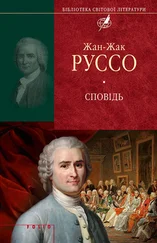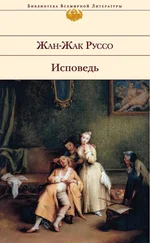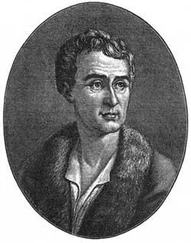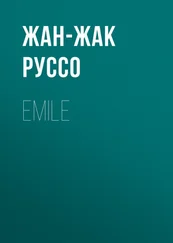Жан-Жак Руссо - The Confessions of Jean Jacques Rousseau — Volume 08
Здесь есть возможность читать онлайн «Жан-Жак Руссо - The Confessions of Jean Jacques Rousseau — Volume 08» — ознакомительный отрывок электронной книги совершенно бесплатно, а после прочтения отрывка купить полную версию. В некоторых случаях можно слушать аудио, скачать через торрент в формате fb2 и присутствует краткое содержание. Жанр: Биографии и Мемуары, literature_18, foreign_antique, на английском языке. Описание произведения, (предисловие) а так же отзывы посетителей доступны на портале библиотеки ЛибКат.
- Название:The Confessions of Jean Jacques Rousseau — Volume 08
- Автор:
- Жанр:
- Год:неизвестен
- ISBN:нет данных
- Рейтинг книги:3 / 5. Голосов: 1
-
Избранное:Добавить в избранное
- Отзывы:
-
Ваша оценка:
- 60
- 1
- 2
- 3
- 4
- 5
The Confessions of Jean Jacques Rousseau — Volume 08: краткое содержание, описание и аннотация
Предлагаем к чтению аннотацию, описание, краткое содержание или предисловие (зависит от того, что написал сам автор книги «The Confessions of Jean Jacques Rousseau — Volume 08»). Если вы не нашли необходимую информацию о книге — напишите в комментариях, мы постараемся отыскать её.
The Confessions of Jean Jacques Rousseau — Volume 08 — читать онлайн ознакомительный отрывок
Ниже представлен текст книги, разбитый по страницам. Система сохранения места последней прочитанной страницы, позволяет с удобством читать онлайн бесплатно книгу «The Confessions of Jean Jacques Rousseau — Volume 08», без необходимости каждый раз заново искать на чём Вы остановились. Поставьте закладку, и сможете в любой момент перейти на страницу, на которой закончили чтение.
Интервал:
Закладка:
The year following (1750), not thinking more of my discourse; I learned it had gained the premium at Dijon. This news awakened all the ideas which had dictated it to me, gave them new animation, and completed the fermentation of my heart of that first leaven of heroism and virtue which my father, my country, and Plutarch had inspired in my infancy. Nothing now appeared great in my eyes but to be free and virtuous, superior to fortune and opinion, and independent of all exterior circumstances; although a false shame, and the fear of disapprobation at first prevented me from conducting myself according to these principles, and from suddenly quarreling with the maxims of the age in which I lived, I from that moment took a decided resolution to do it.—[And of this I purposely delayed the execution, that irritated by contradiction f it might be rendered triumphant.]
While I was philosophizing upon the duties of man, an event happened which made me better reflect upon my own. Theresa became pregnant for the third time. Too sincere with myself, too haughty in my mind to contradict my principles by my actions, I began to examine the destination of my children, and my connections with the mother, according to the laws of nature, justice, and reason, and those of that religion, pure, holy, and eternal, like its author, which men have polluted while they pretended to purify it, and which by their formularies they have reduced to a religion of words, since the difficulty of prescribing impossibilities is but trifling to those by whom they are not practised.
If I deceived myself in my conclusions, nothing can be more astonishing than the security with which I depended upon them. Were I one of those men unfortunately born deaf to the voice of nature, in whom no sentiment of justice or humanity ever took the least root, this obduracy would be natural. But that warmth of heart, strong sensibility, and facility of forming attachments; the force with which they subdue me; my cruel sufferings when obliged to break them; the innate benevolence I cherished towards my fellow-creatures; the ardent love I bear to great virtues, to truth and justice, the horror in which I hold evil of every kind; the impossibility of hating, of injuring or wishing to injure anyone; the soft and lively emotion I feel at the sight of whatever is virtuous, generous and amiable; can these meet in the same mind with the depravity which without scruple treads under foot the most pleasing of all our duties? No, I feel, and openly declare this to be impossible. Never in his whole life could J. J. be a man without sentiment or an unnatural father. I may have been deceived, but it is impossible I should have lost the least of my feelings. Were I to give my reasons, I should say too much; since they have seduced me, they would seduce many others. I will not therefore expose those young persons by whom I may be read to the same danger. I will satisfy myself by observing that my error was such, that in abandoning my children to public education for want of the means of bringing them up myself; in destining them to become workmen and peasants, rather than adventurers and fortune-hunters, I thought I acted like an honest citizen, and a good father, and considered myself as a member of the republic of Plato. Since that time the regrets of my heart have more than once told me I was deceived; but my reason was so far from giving me the same intimation, that I have frequently returned thanks to Heaven for having by this means preserved them from the fate of their father, and that by which they were threatened the moment I should have been under the necessity of leaving them. Had I left them to Madam d'Upinay, or Madam de Luxembourg, who, from friendship, generosity, or some other motive, offered to take care of them in due time, would they have been more happy, better brought up, or honester men? To this I cannot answer; but I am certain they would have been taught to hate and perhaps betray their parents: it is much better that they have never known them.
My third child was therefore carried to the foundling hospital as well as the two former, and the next two were disposed of in the same manner; for I have had five children in all. This arrangement seemed to me to be so good, reasonable and lawful, that if I did not publicly boast of it, the motive by which I was withheld was merely my regard for their mother: but I mentioned it to all those to whom I had declared our connection, to Diderot, to Grimm, afterwards to M. d'Epinay, and after another interval to Madam de Luxembourg; and this freely and voluntarily, without being under the least necessity of doing it, having it in my power to conceal the step from all the world; for La Gouin was an honest woman, very discreet, and a person on whom I had the greatest reliance. The only one of my friends to whom it was in some measure my interest to open myself, was Thierry the physician, who had the care of my poor aunt in one of her lyings in, in which she was very ill. In a word, there was no mystery in my conduct, not only on account of my never having concealed anything from my friends, but because I never found any harm in it. Everything considered, I chose the best destination for my children, or that which I thought to be such. I could have wished, and still should be glad, had I been brought up as they have been.
Whilst I was thus communicating what I had done, Madam. le Vasseur did the same thing amongst her acquaintance, but with less disinterested views. I introduced her and her daughter to Madam Dupin, who, from friendship to me, showed them the greatest kindness. The mother confided to her the secret of the daughter. Madam Dupin, who is generous and kind, and to whom she never told how attentive I was to her, notwithstanding my moderate resources, in providing for everything, provided on her part for what was necessary, with a liberality which, by order of her mother, the daughter concealed from me during my residence in Paris, nor ever mentioned it until we were at the Hermitage, when she informed me of it, after having disclosed to me several other secrets of her heart. I did not know Madam Dupin, who never took the least notice to me of the matter, was so well informed: I know not yet whether Madam de Chenonceaux, her daughter-in-law, was as much in the secret: but Madam de Brancueil knew the whole and could not refrain from prattling. She spoke of it to me the following year, after I had left her house. This induced me to write her a letter upon the subject, which will be found in my collections, and wherein I gave such of my reasons as I could make public, without exposing Madam le Vasseur and her family; the most determinative of them came from that quarter, and these I kept profoundly secret.
I can rely upon the discretion of Madam Dupin, and the friendship of Madam de Chenonceaux; I had the same dependence upon that of Madam de Francuiel, who, however, was long dead before my secret made its way into the world. This it could never have done except by means of the persons to whom I intrusted it, nor did it until after my rupture with them. By this single fact they are judged; without exculpating myself from the blame I deserve, I prefer it to that resulting from their malignity. My fault is great, but it was an error. I have neglected my duty, but the desire of doing an injury never entered my heart; and the feelings of a father were never more eloquent in favor of children whom he never saw. But: betraying the confidence of friendship, violating the most sacred of all engagements, publishing secrets confided to us, and wantonly dishonoring the friend we have deceived, and who in detaching himself from our society still respects us, are not faults, but baseness of mind, and the last degree of heinousness.
I have promised my confession and not my justification; on which account I shall stop here. It is my duty faithfully to relate the truth, that of the reader to be just; more than this I never shall require of him.
Читать дальшеИнтервал:
Закладка:
Похожие книги на «The Confessions of Jean Jacques Rousseau — Volume 08»
Представляем Вашему вниманию похожие книги на «The Confessions of Jean Jacques Rousseau — Volume 08» списком для выбора. Мы отобрали схожую по названию и смыслу литературу в надежде предоставить читателям больше вариантов отыскать новые, интересные, ещё непрочитанные произведения.
Обсуждение, отзывы о книге «The Confessions of Jean Jacques Rousseau — Volume 08» и просто собственные мнения читателей. Оставьте ваши комментарии, напишите, что Вы думаете о произведении, его смысле или главных героях. Укажите что конкретно понравилось, а что нет, и почему Вы так считаете.











